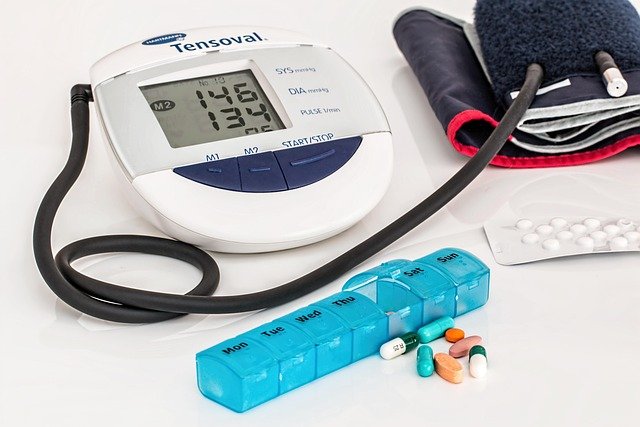Ulcerative Colitis Treatments: Options & Approaches
Ulcerative colitis is a long-term inflammatory condition of the colon and rectum that can disrupt daily life. This comprehensive guide reviews how UC is diagnosed and outlines medication classes, dietary strategies, surgical solutions, and lifestyle changes to help manage symptoms and improve quality of life. Learn practical treatment options, when surgery is considered, and how to work with your care team to tailor a plan that fits your needs.

Ulcerative colitis (UC) is a chronic inflammatory disease that targets the colon and rectum, producing inflammation and ulcers that can affect digestion and wellbeing. Managing UC typically requires a combination of accurate diagnosis, tailored medications, dietary adjustments, and lifestyle strategies. This article summarizes the main diagnostic methods, treatment categories, and self-care approaches patients and clinicians use to control symptoms and maintain remission.
How is ulcerative colitis diagnosed?
Diagnosis begins with a careful medical history and physical exam. Your clinician will ask about symptom patterns, family history, and any prior gastrointestinal problems. Laboratory tests often include blood work to check for inflammation markers (such as CRP), anemia, and electrolyte balance. Stool tests are useful to exclude infections that can mimic inflammatory bowel disease.
Direct visualization of the colon is central to confirming UC. Colonoscopy or sigmoidoscopy allows doctors to see inflamed areas and ulcers and to take biopsies for microscopic analysis. Imaging studies, like abdominal CT or MRI, may be used in certain situations to assess complications or extent of disease.
What medications treat ulcerative colitis?
Medication choice depends on disease severity, location, prior treatment response, and patient-specific factors. Common classes include:
-
Aminosalicylates: Agents such as mesalamine act locally in the colon to reduce inflammation and are often first-line for mild to moderate disease.
-
Corticosteroids: Drugs like prednisone can quickly dampen inflammation during flares. Because of systemic side effects, steroids are typically used short-term to induce remission rather than as maintenance therapy.
-
Immunomodulators: Azathioprine and mercaptopurine help suppress an overactive immune response and may be used for steroid-sparing maintenance therapy. They require routine blood monitoring for side effects.
-
Biologics: Targeted therapies (for example, infliximab or adalimumab) block specific immune molecules involved in inflammation and are options for moderate to severe UC or cases refractory to conventional drugs.
-
Janus kinase (JAK) inhibitors: Oral agents such as tofacitinib are used for moderate to severe disease when other treatments have failed.
Each medication type has potential risks and benefits. Choice of therapy is individualized, and many patients move through stepwise strategies—starting with less aggressive treatments and advancing if response is inadequate. Regular monitoring, including blood tests and periodic assessment of symptoms, helps manage safety and effectiveness.
| Treatment class | Typical role | Approximate cost range (USD) |
|---|---|---|
| Aminosalicylates (mesalamine) | Mild–moderate UC maintenance | $200 - $1,000 / month |
| Corticosteroids (prednisone) | Short-term flare control | $10 - $100 / course |
| Immunomodulators (azathioprine) | Long-term steroid-sparing | $20 - $200 / month |
| Biologics (infliximab, adalimumab) | Moderate–severe or refractory UC | $1,000 - $5,000+ / infusion or month |
| JAK inhibitors (tofacitinib) | Moderate–severe, refractory cases | $1,000 - $3,000 / month |
Costs are estimates and vary widely by region, insurance coverage, dosing, and individual treatment plans. Please consult providers and insurers for specific pricing and coverage details.
Dietary strategies that may help
There is no one-size-fits-all diet for UC, but certain approaches can reduce symptom burden. Keeping a food diary helps identify personal trigger foods such as high-fiber items, dairy, spicy foods, or caffeine. During active flares, smaller, more frequent meals can be easier on the gut, and staying well hydrated is important, especially if diarrhea leads to fluid loss.
Some people find a low-residue or low-fiber diet reduces bowel frequency during exacerbations. Probiotics may support gut flora and help maintain remission for some patients, though evidence varies depending on the strain and preparation. Working with a registered dietitian experienced in inflammatory bowel disease can help you build a tolerable and nutritionally complete eating plan.
When is surgery considered?
Surgery becomes an option when medical treatments fail to control disease, when complications occur (such as severe bleeding, perforation, or dysplasia/cancer), or when quality of life remains poor despite therapy. The most common restorative procedure is a proctocolectomy with ileal pouch-anal anastomosis (IPAA), which removes the colon and rectum and constructs an internal pouch from the small intestine to allow for continence and relatively normal bowel function.
Alternatives include colectomy with a permanent ileostomy in select situations. Surgical outcomes are generally good, but patients should be counseled about potential risks, need for temporary stoma in some cases, and postoperative changes in bowel habits.
Lifestyle measures to support treatment
Nonmedical strategies complement clinical care and can reduce symptom frequency and severity. Stress management techniques—such as mindfulness, yoga, or counseling—help many people cope with flares. Regular physical activity supports general health and can reduce stress. Quitting smoking is recommended because of its broad negative effects on health and potential to complicate disease management. Prioritizing sleep and connecting with support groups or counseling services can improve emotional resilience and provide practical tips from others living with UC.
Working with your healthcare team
Successful UC management is collaborative. Regular check-ups, open communication about symptoms and side effects, and routine monitoring tests allow clinicians to adjust therapies promptly. Discuss vaccination status, bone health, and cancer surveillance plans with your provider, as these elements are important in long-term care.
Managing ulcerative colitis usually involves combining medical treatments, nutrition adjustments, and lifestyle changes to control inflammation and maintain quality of life. By partnering with healthcare professionals and learning which strategies work best personally, many individuals with UC achieve extended periods of remission and improved daily functioning.
This article is for informational purposes only and should not be considered medical advice. Please consult a qualified healthcare professional for personalized guidance and treatment.






